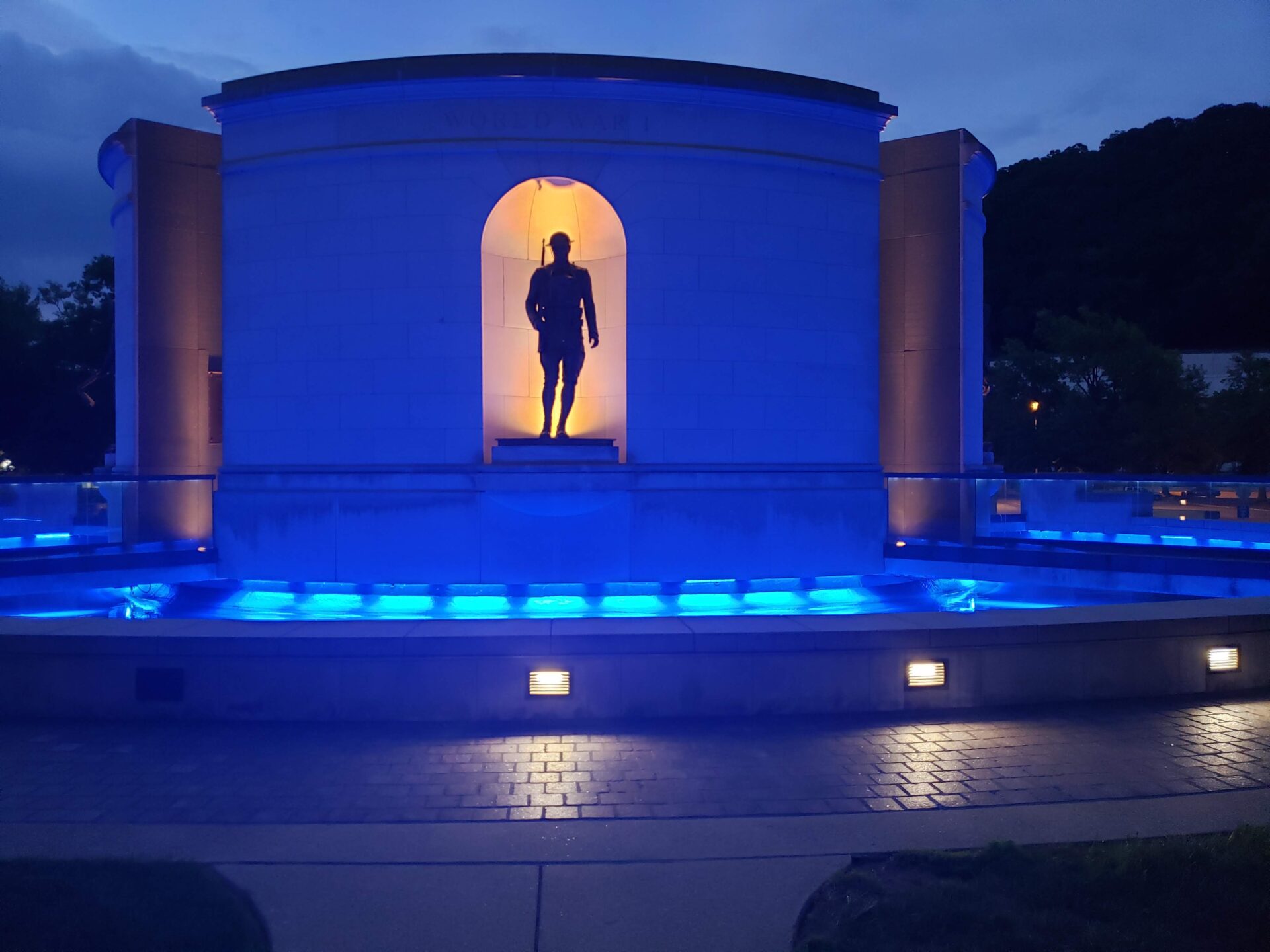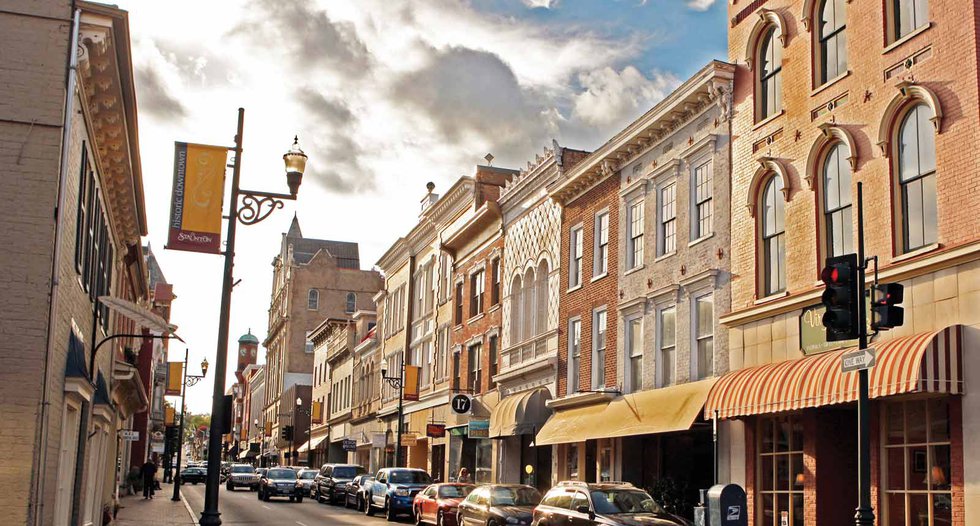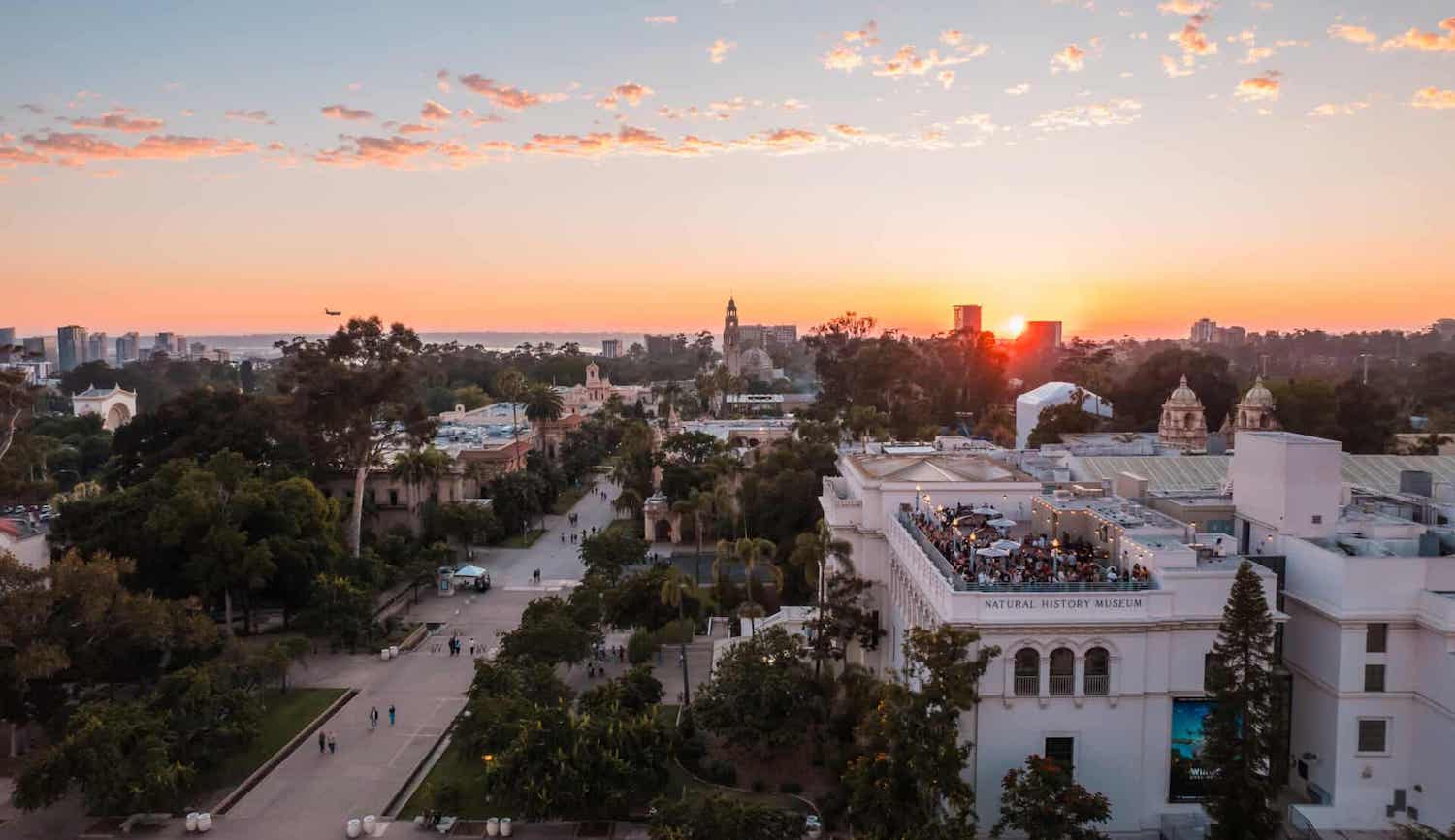A 19th-century minister, pharmacist, doctor and abolitionist, William Henry Brisbane was a man who knew how to start over.
When — decades prior to the Civil War — he was run out of South Carolina for freeing the slaves he’d inherited, Brisbane moved north, eventually landing in Wisconsin.
When Madison didn’t suit him, he moved 30 miles west to Arena.
And when the home he built of wood burned to the ground, he built another one of stone.
The narrow shape of the Brisbane House in Arena is unusual for Wisconsin, but far more common in South Carolina, where William Henry Brisbane was born.
That home became known as the “Brisbane House,” and it has been reinvented once again in recent years, this time by Madison’s Samantha Crownover and her team.
The 1868 home is a charming architectural oddity, yet fresh and welcoming, tucked inside a woodland setting.
The year after Crownover and her husband, Bruce, renovated the Brisbane House, their work earned a 2022 Preservation Award from the Madison Trust for Historic Preservation.
People are also reading…
At a public celebration of Arena’s centennial at Brisbane House on Sept. 10, the project will be presented with yet another honor, the Wisconsin Historical Society’s 2023 Board of Curators Restoration Award.
After saving the house from disrepair, Crownover now rents out the property on Airbnb and Vrbo for between $400 and $700 a night. The main house sleeps six people, and the converted summer kitchen another four. All but nine weekends until the end of the year are booked.
“It really is breathtaking!,” a former guest gushes on the brisbanehouse.net website. “We will always remember this as one of the best places we have ever stayed.”

Materials in the renovated Brisbane House are local, including the kitchen cabinets made from pie safes and the exterior stone, quarried nearby, that was used in the construction of the historic home, owner Samantha Crownover said.
Built in ‘I-style’
Though it’s located in the Wisconsin River Valley, the three-story house, built from locally quarried stone, is designed in the “I-style” more commonly found in Brisbane’s native South Carolina. Tall and skinny, the house is listed on both the national and state registers of historic places.
The Crownovers had long admired it on their frequent visits to the nearby home and art studio of the late William Weege, a great friend of theirs. When Weege’s wife told them one day that the Brisbane House was going up for sale, Crownover immediately called longtime friend and real estate developer Tom Neujahr. Jointly, they made the decision that same day to buy it.
The house cost the partnership a little more than $220,000. Restoration work cost more than double that. The property needed a regrading of the yard and the removal of a sidewalk around the house that was caving in and jeopardizing the foundation. Interior walls had to be re-plastered, and a new furnace and air conditioning installed. The septic system had to be replaced.
“I was the president of the Madison Trust for Historic Preservation (in the early 2000s), so I knew it could be just a money pit,” Crownover said. Even so, having to dig a new well on the property “was a real bummer,” she said.
Crownover, who lives in Madison, also manages the Baskerville Condos at 121 S. Hamilton St., which are on the state and national registers of historic places. She has a “huge Rolodex of people who work on historic buildings,” she said. “And once people saw this place, they said, ‘Oh yeah, I want to work on this.’”
“It was so fun. We worked so fast and got (the main house) done in four months — we closed (on the sale) April 1 and started renting it Aug. 22,” in 2021, she said.
Converting the summer kitchen into four-season bedrooms took longer, as delays related to the Covid-19 pandemic meant a six-month holdup on a shipment of windows.

The house has been rented by visitors coming to the area for family reunions and weddings, guests from Chicago and the East Coast, and even a couple of museum curators from Minneapolis and Kansas City, Crownover said. Brisbane House is open for reservations year-round, and the garage is stocked with snowshoes and sleds.
A new screened-in porch offers a green view of some of the property’s 18 acres. Countless trails wend through the forest and prairie lands nearby.
Filled with art
The previous owner lived in the house for 62 years, raising and home-schooling her six children there and running a toy shop out of the summer kitchen. “She loved this place and was really into Brisbane’s legacy, too,” Crownover said.
Brisbane was raised by his aunt and uncle, who had some 80 enslaved people on their property, she said. Through the Bible, Brisbane became convinced that slavery was immoral.
“When his uncle died, he inherited about 33 (enslaved) people and he sold them because he didn’t believe in slavery,” Crownover said. “Then he thought to himself, ‘Wait a minute, that’s not right.’ He bought them back, then freed them.”

A collage with photographs and poems by abolitionist William Henry Brisbane is on display in the house he built in 1868 that now can be rented out year-round.
Starting a new life in Wisconsin, Brisbane worked as a ferry driver and innkeeper and eventually became a state Senate clerk for the Wisconsin Legislature. It was in that role that some historians think Brisbane also influenced the 1800s-era Wisconsin law that has effectively banned abortions since the overturning of Roe v. Wade.
Crownover, however, says there is nothing in Brisbane’s writings or journals that even mentions abortion.
Today the Brisbane House is filled with samples of Brisbane’s abolitionist writings and contemporary artworks by artists of color. A portrait of Abraham Lincoln painted in vivid hues by the Madison artist Romano Johnson hangs in the living room. Other rooms feature work by artists such as abstract painter Sam Gilliam, the late folk artist Simon Sparrow and silhouette artist Kara Walker.
The pieces were personally collected by Crownover, also an art consultant for works on paper, and her husband, an artist and retired master printer for UW-Madison’s Tandem Press. Crownover selected wall paint colors and even wallpaper on the ceiling to complement each artwork. House guests can page through a binder for an “art tour” explaining each piece on the walls.
Rooms in the old house are bright and airy. Each bed is draped with a handmade quilt or coverlet — most of them fashioned by the Crownovers’ ancestors.

“Aren’t they amazing?” Crownover gushed over the antique handwork. “And what are you going to do with quilts? Leave them in the closet? Or use them?”
The same is true for Brisbane House — a place Crownover wants to share with visitors from around the world, she said.
“People who come here are so respectful,” she said. “It’s important for me to respect who came before me — and who had this place and loved it so for so long.”

A bedroom now occupies what used to be a summer kitchen at the Brisbane House in Arena. Quilts on many of the beds in the house, which sleeps 10, were made by ancestors of Samantha and Bruce Crownover, who renovated the property.

Doors original to the Brisbane House, right, lead to a renovated bathroom. The interior of the historic home has a bright and contemporary feel.

As in most rooms, the study area in the Brisbane House features an original artwork by a renowned artist of color.

Set on 18 acres, the Brisbane House now features an added-on screen porch. The property is available to customers year-round.

Sam Crownover gives a tour of the Brisbane House, built in 1868 by abolitionist William Henry Brisbane.

Family quilts now cover most of the beds in the Brisbane House. This renovated loft space is popular with children who visit the historic home, now a vacation rental, Samantha Crownover said.

Sam Crownover and her husband, Bruce, renovated the Brisbane House, built in 1868 by abolitionist William Henry Brisbane in Arena and now serving as a vacation rental. The project will be honored with a Wisconsin Historical Society award in September.

Samantha Crownover, right, stands in the kitchen of the Brisbane House, which opens on to a living room adorned with a painting of Abraham Lincoln by the well-known Madison artist Romano Johnson.

A star motif is used throughout the renovated interior of the Brisbane House.






























/cdn.vox-cdn.com/uploads/chorus_asset/file/25739950/247386_Elon_Musk_Open_AI_CVirginia.jpg)
